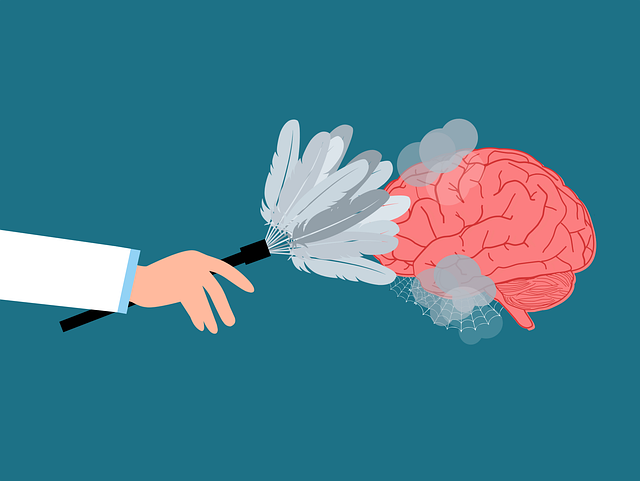Cancer's impact extends beyond physical health, affecting mental well-being and creating unique challenges known as Lone Tree Cancer issues. Therapies like compassion cultivation, self-awareness promotion, and communication enhancement among patients, caregivers, and healthcare providers offer solutions. These practices empower individuals to manage emotions, build resilience, and find solace during their cancer journey, ultimately enhancing mental health and active care participation. Practical strategies such as positive thinking and mindfulness exercises further support coping with daily challenges, fostering growth and overall well-being through Lone Tree Cancer Issues Therapy.
Cancer can significantly impact mental health, making coping skills development vital for patients’ well-being. This article guides you through understanding the disease’s psychological effects and offers practical strategies for daily management. We explore the role of therapy in building resilience and strengthening support systems. Learn about accessible resources tailored to address Lone Tree cancer issues, empowering patients to navigate their journey with effectiveness and hope.
- Understanding Cancer and Its Impact on Mental Health
- The Role of Therapy in Building Coping Skills
- Practical Strategies for Daily Coping with Cancer
- Support Systems and Resources for Cancer Patients
Understanding Cancer and Its Impact on Mental Health

Cancer, as a life-altering diagnosis, presents unique challenges that extend beyond physical health concerns. It significantly impacts mental well-being, often leading to a myriad of emotions such as fear, anxiety, and sadness. The journey through cancer treatment can be isolating, with individuals grappling not only with their physical condition but also the emotional weight of this life-changing event. This profound impact on mental health is a critical aspect that demands attention alongside the physical aspects of coping with a serious illness like cancer.
Understanding these Lone Tree Cancer issues involves recognizing the psychological toll it takes. Many patients struggle with maintaining self-esteem and a sense of control over their lives. Here, practices like Compassion cultivation can be instrumental. Encouraging self-awareness exercises and effective communication strategies among patients, caregivers, and healthcare providers can foster an environment of support. By integrating these tools, individuals navigating cancer treatment can find solace, enhance their resilience, and better manage the emotional aspects often associated with a cancer diagnosis.
The Role of Therapy in Building Coping Skills

Lone Tree Cancer Issues Therapy plays a pivotal role in equipping individuals with effective coping skills to navigate challenging situations, especially when dealing with life-altering diagnoses like cancer. This therapeutic process goes beyond treating symptoms; it empowers patients to manage their emotional well-being during and after their journey. Therapists provide a safe space for clients to express fears, frustrations, and hopes, fostering self-awareness and resilience.
Through various evidence-based techniques, therapy aids in developing coping strategies tailored to each person’s unique needs. This may include stress management techniques, cognitive restructuring, or mindfulness practices. By integrating these skills into daily life, individuals can enhance their ability to handle stress, anxiety, and depression, thereby improving overall mental health. Additionally, therapists often guide clients in creating comprehensive risk management plans, as outlined in Crisis Intervention Guidance, ensuring they have tools to recognize and mitigate potential crises. This holistic approach, combined with ongoing support, enables individuals to actively participate in their care, promote healing, and thrive despite Lone Tree cancer issues.
Practical Strategies for Daily Coping with Cancer

Coping with cancer involves practical strategies that can help manage daily challenges. One effective approach is to incorporate positive thinking and confidence-boosting techniques into one’s routine. Simple practices like journaling, meditation, or even short mindfulness exercises can cultivate a sense of calm and optimism, empowering individuals to navigate their Lone Tree cancer issues with greater resilience.
Additionally, applying the principles of mind over matter can be transformative. Focusing on what one can control and reframing thoughts from negative to positive helps in building mental fortitude. This doesn’t mean ignoring the reality of cancer but rather cultivating a mindset that embraces challenges as opportunities for growth, enhancing overall well-being during therapy and beyond.
Support Systems and Resources for Cancer Patients

Cancer patients often face a unique set of challenges, including navigating Lone Tree cancer issues while managing their mental wellness and mood. Thankfully, there are numerous support systems and resources available to aid them in this journey. These include therapy services that cater specifically to cancer survivors, where professionals help process emotions, adapt to life changes, and develop coping strategies for the psychological effects of cancer treatment.
In addition to traditional therapy, mental wellness podcast series production has emerged as a valuable tool. These podcasts provide platforms for sharing stories, offering advice, and discussing coping mechanisms. They foster a sense of community among patients, promoting open conversations about mental health and encouraging practical strategies for maintaining mood management. This dual approach—professional support and accessible media—significantly contributes to enhancing the overall well-being of cancer patients.
Cancer patients often face significant mental health challenges, but developing effective coping skills can make a profound difference. By understanding the disease and its impact, utilizing therapy as a tool, adopting practical daily strategies, and leveraging support systems, individuals navigating Lone Tree cancer issues can enhance their resilience. These approaches not only help manage symptoms but also improve overall well-being, enabling patients to face their journey with strength and hope.














